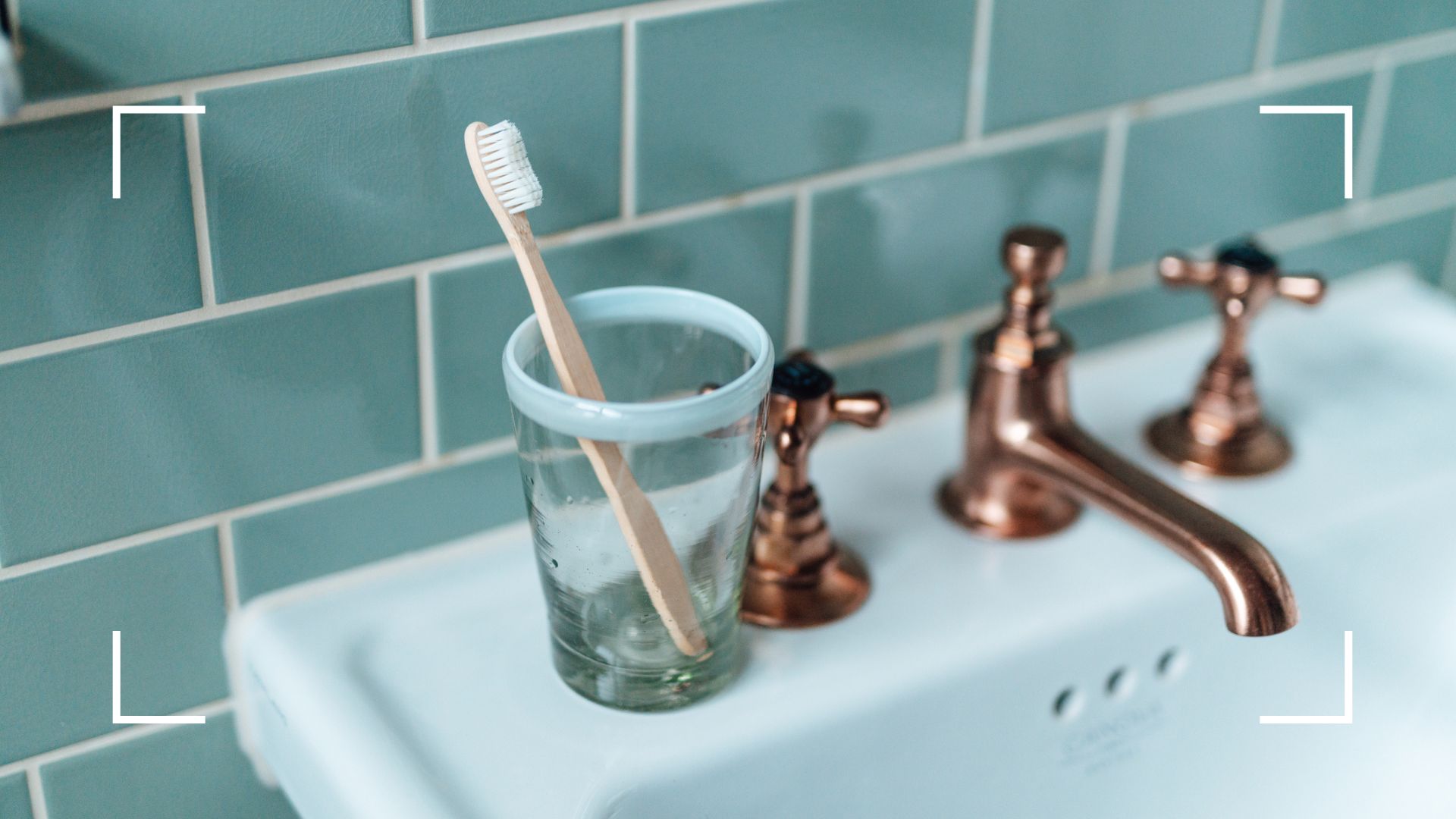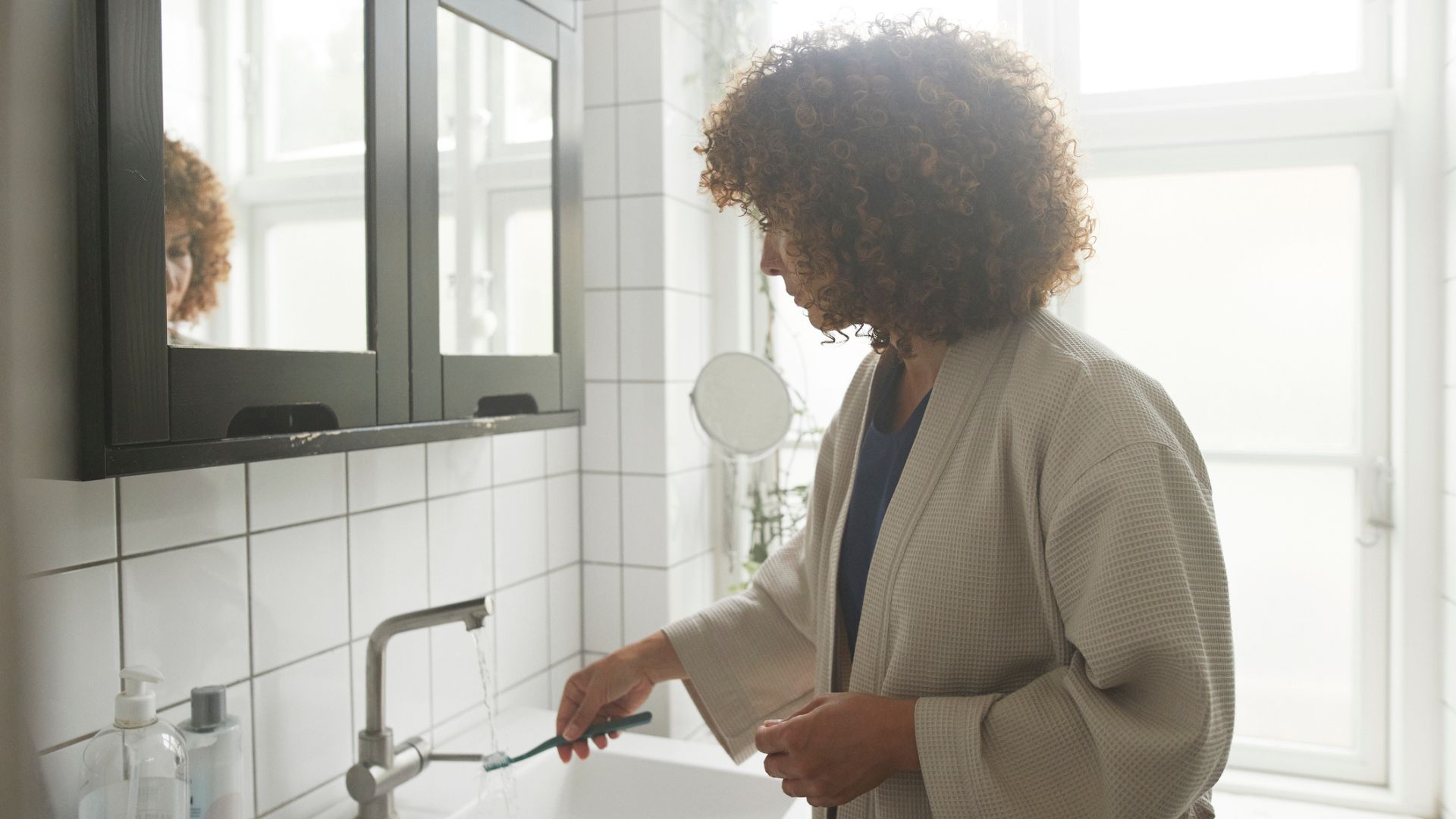How often should you brush your teeth? Here's what dentists have to say
How often should you brush your teeth? Oral care experts reveal what you need to know


How often should you brush your teeth for the best clean? We're all told different amounts, depending on what we eat, when we eat and various other lifestyle factors. Here, two dentists reveal what they really want you to know about this essential oral care ritual.
From a young age, we're told to brush our teeth daily. Even with all the technological advancements in dentistry, it's still the expert-recommended way to take care of your teeth, gums, and oral health.
As we've got older though, teeth brushing has become a little bit more complicated. It's all about the aesthetics of having the whitest smile with a pick of the best whitening toothpastes or ensuring that they're the straightest they can be. Sometimes, you have to take it back to the basics and learn how to brush your teeth properly. Here, two dentists reveal how often you should brush your teeth and how to get the best clean.
How often should you brush your teeth?
If you want to maintain good oral hygiene, you need to brush your teeth twice a day, every day. Ideally, 30 minutes before you eat breakfast in the morning and then 30 minutes after you've eaten dinner in the evening, says dentist and founder of Icy Bear Dental, Dr Hanna Kinsella.
"Waiting 30 minutes will allow your enamel to harden and prevent it from being worn away by brushing," she says. "It’s important you stick to only brushing twice, to three times at most, as brushing more than this will damage your teeth by wearing down your enamel.”
It may be a surprise that we shouldn't brush our teeth after every meal, as scaremongering over the years teaches us that food is the enemy of healthy teeth and gums, so removing it immediately is the way forward. But twice a day with the best toothpaste is enough to get all the benefits that teeth brushing can bring.
"Brushing is so important for your oral health as it removes, and prevents, the build-up of plaque. This is white bacteria that destroys enamel, causes cavities, and increases the risk of gum disease," Dr Kinsella says.
Sign up to our free daily email for the latest royal and entertainment news, interesting opinion, expert advice on styling and beauty trends, and no-nonsense guides to the health and wellness questions you want answered.
It's also the perfect number to reap the other key health benefits many of us don't think about. "Brushing also removes food debris that can linger in the mouth and create a bad odor," she adds. "Everyone thinks brushing is just for oral health, but it is actually so important to the functioning of your entire body. Your mouth provides direct access for bacteria to enter your lungs and bloodstream, so brushing your teeth protects your immune system from anything harmful and ensures an overall high standard of health.”
Upping your cleaning routine is not how to whiten teeth naturally either, says dentist Dr Kailesh Solanki at Dental Phobia. "Cleaning doesn't affect the color of your teeth. Your diet, lifestyle habits, and age affect the color, as does having professional whitening or bleaching."
When it comes to other oral care routines, like flossing, this should only be once a day and it's important to learn how to floss your teeth properly to get the most out of the task. "Brush your teeth twice daily and floss once a day," says Dr Solanki. "Ideally the flossing should be at night, then you don't need to floss in the morning as you won't have eaten overnight."

How long should you clean your teeth for?
Two minutes is only the minimum length of time you should spend brushing your teeth, Dr Kinsella says. However, don't go above four minutes as this is over-brushing which can cause sensitivity and tooth abrasion.
"I always tell patients to set a timer, so they know when they are done, or to play their favorite song so that they spend three to four minutes brushing. If you're used to brushing quite quickly, try to slow down by brushing tooth by tooth, starting at the top and working your way down. This method makes sure you don't miss any plaque or debris," she says.
How often should you change your toothbrush?
You should replace your toothbrush or the head of your electric toothbrush every three to four months, according to the Centers for Disease Control (CDC). After this point, the brush is worn out and is unlikely to do an adequate job.
What's surprising, however, is that the type of toothbrush you use - whether manual or your pick of the best electric toothbrushes - rarely matters. "It's all about consistency and having a routine, and most importantly, getting in to see a hygienist at least every six months for a professional clean. You can't clean to the level they can with professional tools," Dr Solanki says.
Electric toothbrushes certainly have their advantages though, with many of the top ones coming with in-built timers so you know exactly how long to brush for. There's also research conducted by the Oral Health Foundation recently to suggest that those who do opt for an electric toothbrush have healthier gums, less tooth decay, and also keep their teeth for longer compared to those who opt for a manual one.
However, as Dr Solanki says, it's the consistency of teeth brushing that matters the most.

Grace Walsh is woman&home's Health Channel Editor, working across the areas of fitness, nutrition, sleep, mental health, relationships, and sex. She is also a qualified fitness instructor. In 2025, she will be taking on her third marathon in Brighton, completing her first ultra marathon, and qualifying as a certified personal trainer and nutrition coach.
A digital journalist with over seven years experience as a writer and editor for UK publications, Grace has covered (almost) everything in the world of health and wellbeing with bylines in Cosmopolitan, Red, The i Paper, GoodtoKnow, and more.